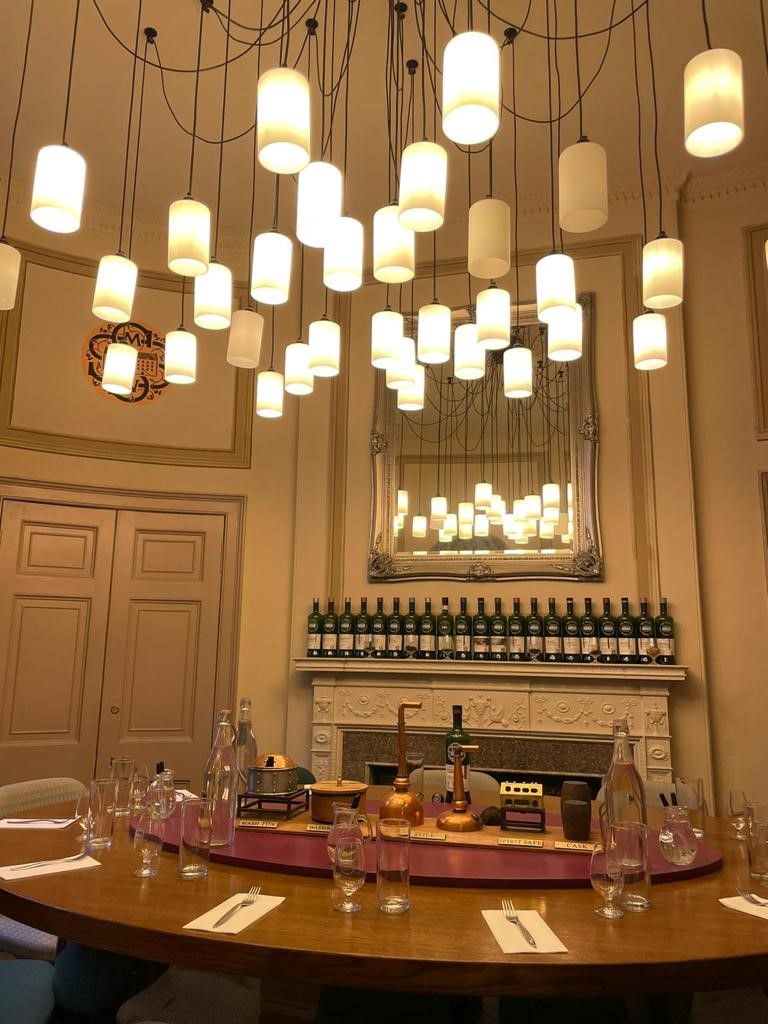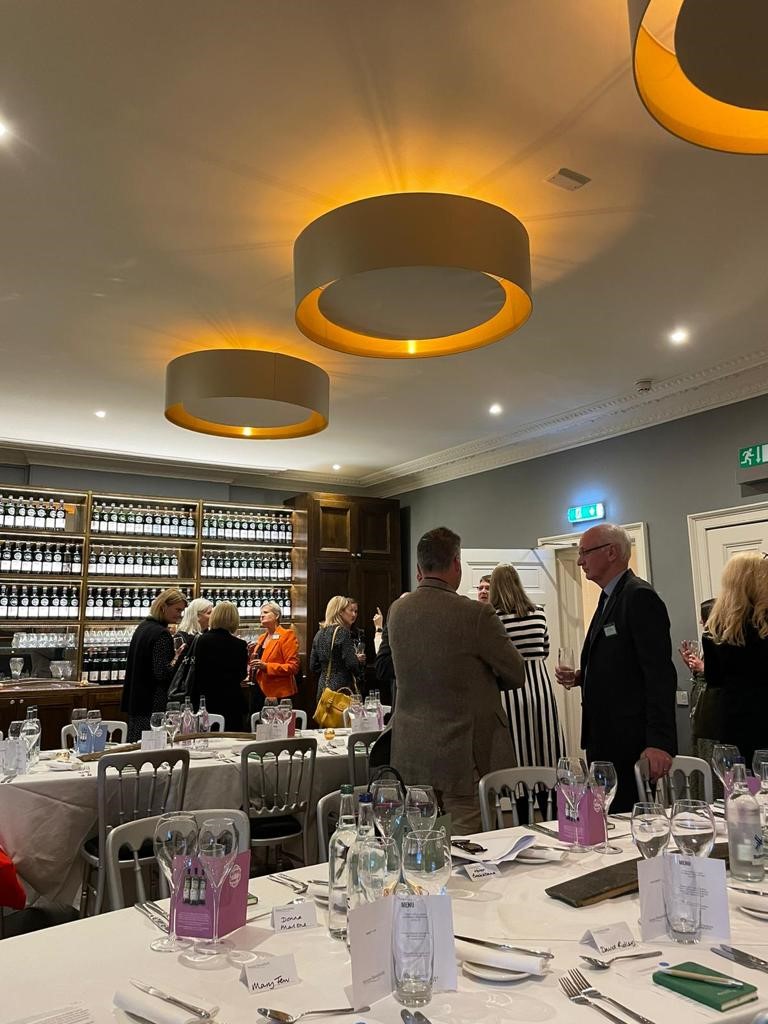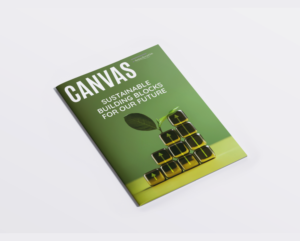
The glorious dining room of the Scotch Malt Whisky Society in Edinburgh’s Queen Street was the setting of our Talent Dinner in collaboration with the Scotch Whisky Association. Escaping the blustery October weather we gathered 17 senior professionals from across Scotland’s illustrious whisky industry to hear from Helen Brocklebank, CEO of Walpole and share perspectives on the current talent market for the luxury sector.
Walpole is the industry body for British luxury brands – a sector that’s worth £48bn to the U.K. economy, and is a leading creator of jobs the length and breadth of the British Isles. It’s also a sector that is hugely desirable to affluent international customers – possibly why 80 percent of what’s produced is destined for overseas markets – not least the importance of the US and south East Asian markets for whiskies- and is a key driver of the £30 billion high end visitor economy in the U.K.
Whisky definitely sits in the luxury market, but also has a place very much in the homes, communities and businesses right across Scotland as the country’s leading food and drink export. An industry that continues to show strong signs of growth, there is a real need and desire to grow and diversify the talent pool. This was the focus of discussion around the table that evening and here we have shared some of the thoughts and themes.



Team GB of luxury
The customer is not the elite. The elite is the exceptionally skilled craftspeople, marketeers and leaders that put the excellence into the brands and can take advantage of a big increase in demand by creating beautiful desirable products. Good brands endure, but it’s the people in them that make the difference between good and truly great.
Raise a toast to talent – and market it more
A lot of money is spent on marketing the luxury product, but with a need to grow the talent pool and attracting it from outside the traditional environment and geography there needs to be more investment on marketing of and for the talent. The luxury sector, and whisky specifically, has many opportunities with lots of different roles, skills and qualifications needed from brand ambassador to master blender, customer service to chief executive, marketing to maltster highlighting the breadth and depth of talent needed for the sector. There are real opportunities to target those from outside the whisky industry, but there also needs to be more emphasis looking internationally too.
Mechanisation breeds modernisation
Greater mechanisation across the whisky industry, and particularly in the warehouse and logistics means that the profile of the employees is shifting from male-dominated. It brings more opportunity for diversity in certain areas, which is being reinforced with more women coming through the sector as brand ambassadors and master blenders. It was suggested that the profile is really changing from a gender and even ethnicity perspective and is encouraging a lot more women to come through the sector, fuelled in some part by the interest and expansion of courses like the MSc in Brewing and Distilling run by Heriot Watt. A positive note was sounded that the next 5-10 years are set to bring far greater change within the demographic and diversity of the workforce.
Collaborator until you are a competitor
The whisky industry is naturally collaborative and works well together – large, small, corporate and independent. They communicate and educate in their own way but through organisations like Scotch Whisky Association and Scotland Food and Drink there are many opportunities and forums to talk, partner and mentor (to some degree). Fundamental to the national, rural and local economies collaboration is encouraged and embraced in this industry. However, competition does not disappear and brands must look to differentiate and diversify where they can to ensure that the industry remains as vibrant and varied as it can. So much of that is down to the people and that is important when thinking about bringing new people into it: finding that optimum mix between collaborator and competitor will be key to the ongoing success of the sector and its people.
Pandemic pain can bring gain
The lessons and pains caused by the pandemic have shone a light on the people power in an organisation. Mindsets need to shift and some form of work time flexibility needs to be a foremost consideration. Travel to and from workplaces, as well as round the world has shifted to a much more considered view: it is important, and in luxury industries like whisky this can be vital but it needs to be essential, consolidated and a two way conversation. This is important not just for our staff, but also for the climate and cost of living challenges. We want to support our staff and the planet as best as possible.
Passion, pride and permanence
Whisky production is not for the faint-hearted or the impatient. It is an industry of luxury and longevity. The passion and pride for ‘uisge beatha’ or ‘water of life’ seeps through Scotland’s veins. This is an industry unlike any other, and offers a passion and purpose for its past, present and future employees. The promise is not of a job, or even a career, but possibly a way of life and the chance to be part of a skilled industry with global renown which will outlive us all.
